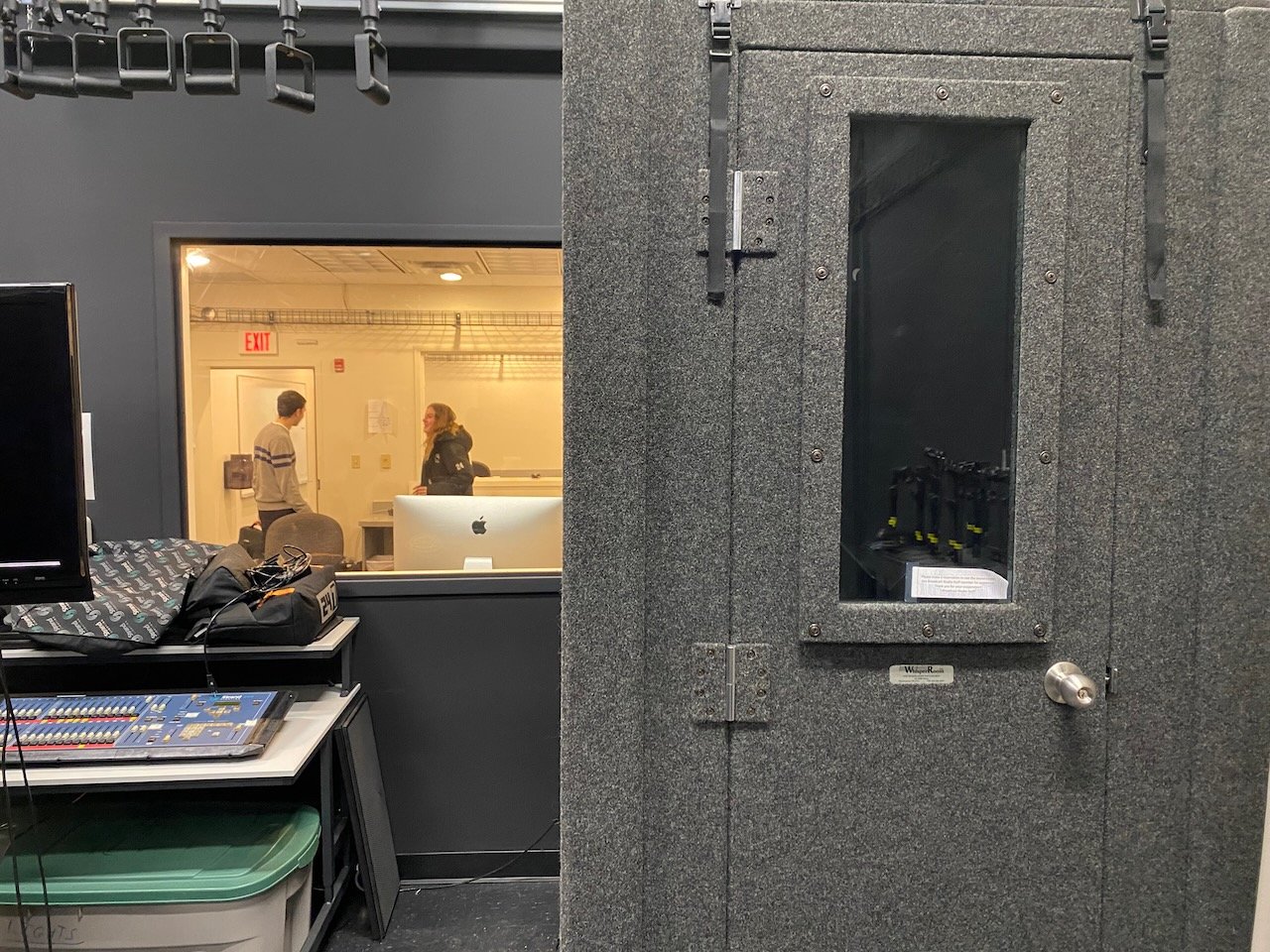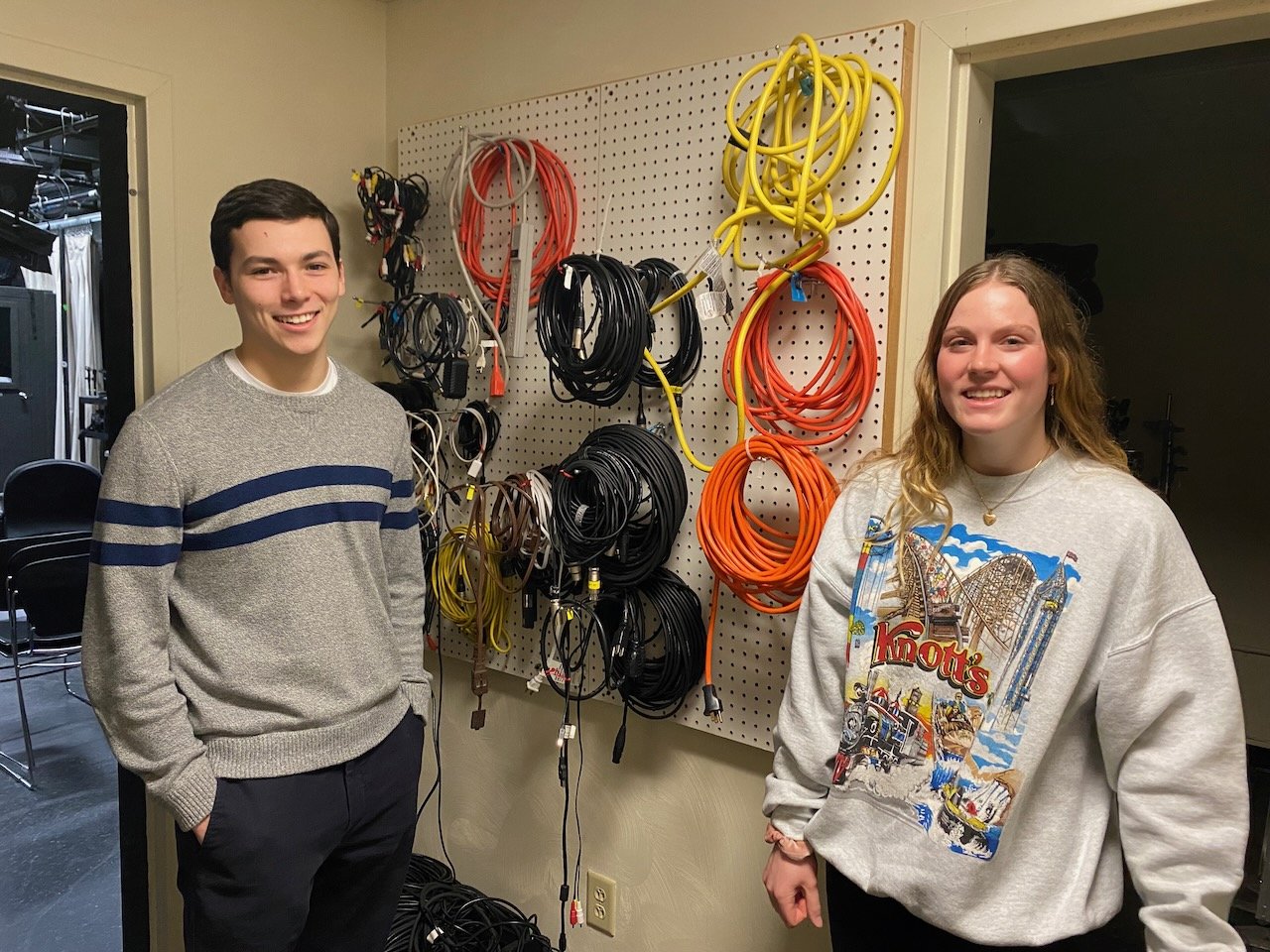Take a Peek Into Chatham’s Broadcast Studio
The recording booth in Chatham University’s broadcast studio, located in the lower level of Mellon Center. (Mick Stinelli)
Walk through the winding, subterranean hallways in the lower level of Mellon Center, stop short before you reach Mellon Board Room, and you’ll find one of Chatham’s best technology resources: the broadcast studio.
Go through the unassuming doorway and you’ll see there’s more here than you might expect. Professional video cameras, zoom recorders, microphones, and a recording booth are just some of the equipment available. Student workers, like Allie Corse-James ’24, can guide you through it all.
Corse-James, who majors in media arts, started working in the studio her first year at Chatham. “It’s the first thing my mom told me: you go to college and you get a job, so you can help pay for groceries and stuff like that,” she said.
When she saw a job opening in the broadcast studio, it seemed like a good fit. “I can get a job at the studio so I can have something tied to my major for my resume, and so I can be involved in my major more.”
She stuck around because she enjoys having full access to the studio. As a student concentrating on film, Corse-James enjoys the access she has to high-quality equipment, like Blackmagic brand cameras.
Working in the studio gave her the chance to experiment with more different types of technology than she would have used in classes alone.
And while the technology in the studio is largely intended for trained media arts students and journalists with the student-run newspaper, the Communiqué, other people who want to use these cameras or mics will need special permission from the studio head, Professor Don Gabany. But jobs in the studio are open to all undergraduates.
Pearse Bialowas ’26 and Allie Corse-James ’24 stand in front of a wall of wires. They’re two students who work in Chatham’s broadcast studio. (Mick Stinelli)
Pearse Bialowas ’26, a second-year student majoring in accounting, started working there in his second semester. There’s not much accounting to do in this job, but Bialowas says that’s the point.
“Being an accounting major kind of sets you on track for just accounting opportunities,” Bialowas said. “I wanted to be a little more versatile than that, so I thought the broadcast studio would really help round me out with something I didn’t really have on my resume prior.”
That includes helping students reserve equipment, keeping track of rentals, and making sure gear is ready for classes when they come to the studio.
“It’s very refreshing to see people working on a lot of projects and people planning and creating, things like that,” he said.
Most students will need to receive instruction from a faculty member on how to use equipment in the studio, such as lights and camera stabilizers, before they’re able to rent it.
“Take a production class,” Corse-James said. “When you’re no longer a student, it’s going to be a lot harder to get access to equipment.”
And if you do plan to take out something, Corse-James has one piece of advice: “Plan,” she said. “When you’re getting equipment, make sure you use it the most efficiently, especially because you only have a certain amount of time you can use it. Plan your shoots as well as you can.”
Learn more about the media arts degree at Chatham, which prepares students for work in film, photography, and graphic design.


